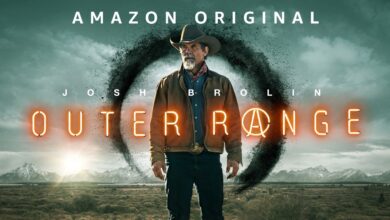Better Call Saul Season 6 Episode 13 Review: The Grand Finale We Deserved! Good By Saul
Stars: Bob Odenkirk, Jonathan Banks, Rhea Seehorn
Director: Vince Gilligan
Streaming Platform: AMC and Netflix
Filmyhype.com Ratings: 4.5/5 (four and half stars)
Better Call Saul Season 6 Episode 13 Review: It was September 29, 2013, when an anagram of the word “final” dismissed us from one of the most successful series not only of those years but of the entire history of the medium. With “Felina”, Breaking Bad closed Walter White’s criminal parable by redefining the boundaries of television series (the most nostalgic can rediscover the history and importance of Breaking Bad in our special). Mourning shortly thereafter softened by the announcement of a spin-off focused on the character of Saul Goodman. And, despite the excitement of returning to that universe and the chance to meet some of our favorites again, the gargantuan shadow of the parent series loomed on Better Call Saul, although at the helm we found the acclaimed Vince Gilligan in the company of Peter Gould, who in turn had given us some of the best moments of Breaking Bad.

It has never really been a duel between the two serials, but throughout its seasons, the spin-off on Saul Goodman has demonstrated a depth and maturity that have also shed new light on some events of the main show. chiseling their protagonists with abundance and getting much more of the evolution of Jimmy McGill in Saul Goodman than everyone expected. And the Better Call Saul end is a sum of all these elements that have contributed to the success of this drama that we do not hesitate to call great, now that Saul is finally out of our lives only to stay, as it was for Walter White.
Better Call Saul Season 6 Episode 13 Review: The Story
It is in the name of linearity that the events of Gene Takavic find their natural conclusion, after last week the whole timeline set in Nebraska risked collapsing following the renewed fraudulent nature of Jimmy, unable to definitively hide Saul Goodman behind the manager. of Cinnamon from Omaha (in this regard, we invite you to take a look again at our review of Better Call Saul Season 6 Episode 12). But it is the three flashbacks of this ending that are fundamental to unite all the pieces of the puzzle, to definitively outline the parable of Jimmy McGill.
It is the theme of remorse that acts as a common thread in all these forays into the past, where we meet three key characters for the last time not only in the show but in Saul’s own life. The paradox of the time machine is Saul’s ploy borrowed from his brother Chuck’s readings to investigate Mike and Walt’s regrets, and it is precisely these two occasions that define once and for all their respective roles and what led them into that particular situation and, consequently, their fate.
There seems to be none of this in Saul, who limits his remorse to a lack of foresight regarding certain situations that could have enriched him or petty accidents that have caused him some ailments. A bit like his brother Chuck, who in his arrogance does not even find room to rethink the choices made towards his brother who, directly or indirectly, contributed to the very birth of Saul Goodman.
But things are not exactly like that for Jimmy, because the only irreparable flaw that continues to take on water in his unsinkable person is linked to the relationship with Kim, or with the one who managed to get him over the impasse of the relationship with his brother, constant stimulus for all the events that almost led them to defeat, but which at the same time was the only one to be able to stop, to always be completely herself without compromising, if not that life made of made in Florida ordinariness that allowed her to lighten the burden of her actions for a few years.
Better Call Saul Season 6 Episode 13 Review and Analysis
So here, as in the best dramaturgical tradition, we are witnessing an eternal return that if so far has led us to witness the transformation of Jimmy into Saul, now leads Saul himself to rediscover Jimmy McGill, to return to his roots. Death and rebirth. Once again Kim Wexler proves crucial in this process, as in some of the most important steps in her ex-husband’s adult life. Between quotes and appeals, the parentheses between Jimmy and Kim in this finale are the most humanly significant Better Call Saul has produced, in an abundant hour that combines drama and legal drama through granite photography and a montage that impeccably punctuates the events on screen.
Peter Gould masterfully manages to blend the past with the present to distill the very essence of Jimmy and lead him towards an inevitable destiny; a bit like Gilligan had done with Walter White, but perhaps in an even more complete and well-rounded way, sure of the excellent performances of his interpreters and of the direction taken to push Jimmy away from the certainty of a destiny that Saul would not have disdained at all, but that would take him very far from the only bond left in his life. Doing the right thing, then, as Kim did, managed to take back a part of herself and carry out her dream in her way. For this reason, the ending of Better Call Saul does not contain all the fatalism of “Felina” but, on the contrary, puts the elements of the universe of Jimmy back in their place to finally be able to continue free from regrets and subterfuges, even if in the eyes of the others will never get rid of the Saul Goodman mask.
The most comical scene of this Better Call Saul finale is dedicated to him, the one in which Bill would like to retire but the judge puts him back in his place by silencing him. Saul acts with mastery, with that manipulative cunning that has always been his own. We see the meanest and most horrible aspect of it in the speech delivered in front of Marie: a false speech that becomes a real insult and mockery of Hank’s widow. It’s a monstrous legal masterpiece that would only take him seven and a half years to serve. Still, something stops Saul. Once again in him, for a moment, another part of himself emerges. Once again, the author of this inner rebirth is Kim. Her name, just evoked, the news of her confession, makes Saul’s mask fall again. Before he returns the three symbols, the ones he had faced and left in the desert. They come back to ask for reasons, to get a final admission from him. They torment him one last time with their presence until James McGill accepts their dramatic existence.
The first symbol, the dollar, is the lust for power. James takes the floor in front of the judge he seems to repeat the false and haughty litany heard by Marie but this time something changes. He drops the lie of the mask and only the truth remains: “I was terrified but not for long. I saw an opportunity that night. An opportunity to make a lot of money “. It is the first admission of guilt. The dollar entangled in the desert flies away, now that agonizing sense of guilt, that truth that he refused to look at for too long is gone. As Walt admits in Breaking Bad that he did it “For myself,” and so does James. But that’s not enough.
It is the symbol of his identity, of what he is: when he accepted the position at Davis & Main he had changed cars by taking an expensive company sedan but soon he accepted how uncomfortable and oversized it seemed to him (his ” travel mug “did not fit into the compartment). He had thus returned to his old job, his clothes and his broken car. Now that car, that is, that being itself, asks for a reason for itself. So, James, hearing his name as Saul, corrects the judge, and regains possession of his deepest essence of him: “My name is McGill, James McGill “. Saul went, Saul is gone, and in front of us, there is only the man, laid bear with all his doubts, feelings of guilt and irreversible regrets.
There is only the man called to his most severe condemnation, to have to live forever with his errors, with those ghosts that only confession can remove from itself. The black and white remain, the grayness of those who have tried to mask their wounds with the bright colors of a mask that Jimmy loved to wear and, after all, continues to love. He remains, in a sense, Saul Goodman, because he is a part of Jimmy that cannot leave permanently. It remains in him in the relationship with the prisoners, in the satisfied smile in seeing himself acclaimed at the cry of “Better Call Saul“. The final synthesis between James and Saul is thus accomplished. The two instances learn to coexist, now free from the falsehoods of one or the other. Saul remains in the gun-pointed hands, in the extroverted acrobat personality that Jimmy cannot let go of without losing a part of himself.
In prison, he can finally be himself, along with Saul and Jimmy. There is no color, however, there cannot be, because his mistakes are irreversible. It is no coincidence that as soon as he is arrested, he bothered to call to work so that shifts are redeployed, and a new store manager is sought. It is a speech very similar to that made by Gustavo in Better Call Saul’s 6 × 08, when the drug kingpin, despite being injured and in pain, worries about the management of Los Pollos Hermanos. Both have no affection, their race for power required them to give up human relationships and so they have no one else to call but their subordinates. They have nothing to worry about other than their ordinary jobs.
It is Kim who moves morality in him, with his confession, with his words. That presence that Saul had learned to expunge from his life, giving himself to prostitutes and occasional intercourse, returns overwhelmingly and his mask does not resist. Moral scruple clears, the denied and crushed sentiment re-emerges, and Saul slowly crumbles allowing James to appear again. There can be no happy ending for Kim and Jimmy because we are already in the hour of regrets, of what could have been and was not, mistakes that could have been avoided but which have now irreparably removed both. Saul’s faults impose life imprisonment and so there is only one last deception to see them together again, one more time, one last time.
Kim pretends to be her lawyer using her lawyer ID. She breaks into the prison. James can look into her eyes, she can do it with the strength of a confession, of repentance. She gave up everything for that look of hers, to see her again with the eyes of the past, eyes in love and accomplices. There is no sense in a hunted life, in black and white, without Kim. Without love. Jimmy has figured it out, too late for full light to return but enough to see love in the eyes again. And then there is room for a last shred of color, for a subtle light, that of the embers of a shared cigarette, which still illuminates life, the time of a visit.
We drift away as a barbed wire fence irreversibly separates us from a life of family affection we will never live. We close our eyes, we know it won’t do any good, but we close our eyes and start letting go of regrets. We close our eyes and the world rewinds, we fly faster than light while we return perhaps only with the mind, only with the heart, to the time when everything was still possible, in which before us there was a way out and a happy ending. We are back at the beginning of everything, leaning against the wall with our love at our side, smoking a shared cigarette. We’re back to the Better Call Saul pilot, at the beginning of the journey, at least for a moment, only for a second, for that second that we have extorted from irreversible and cursed time.
We watch the woman who could have gone away, who should have been our life partner, who could have saved us, who partly saved us, like Superman, by rewinding time, making us return to ourselves. We close our eyes again while a light wind caresses us: our ghosts are no longer there but the black and white remains of what could have been and will never be, no more. Now that nothing goes right and everything is lost forever. Now only regrets remain. Saul is gone, man. Saul gone Saul.
Better Call Saul Season 6 Episode 13 Review: The Last Words
We salute Better Call Saul Season 6 Episode 13 and with him one of the most successful endings of the television series. The show by Vince Gilligan and Peter Gould carries on its narrative with iron coherence, not only from an impeccable formal point of view but also and above all through a dialectic that definitively closes the parable of Jimmy McGill by putting his universe back in order, in a path of death and rebirth that allows the character beautifully played by Bob Odenkirk to put aside the infinite masks to finally chase what matters.







Had the experience of travelling along many universe. The ending keeps us dumb for a long time. Brilliant story spinning.